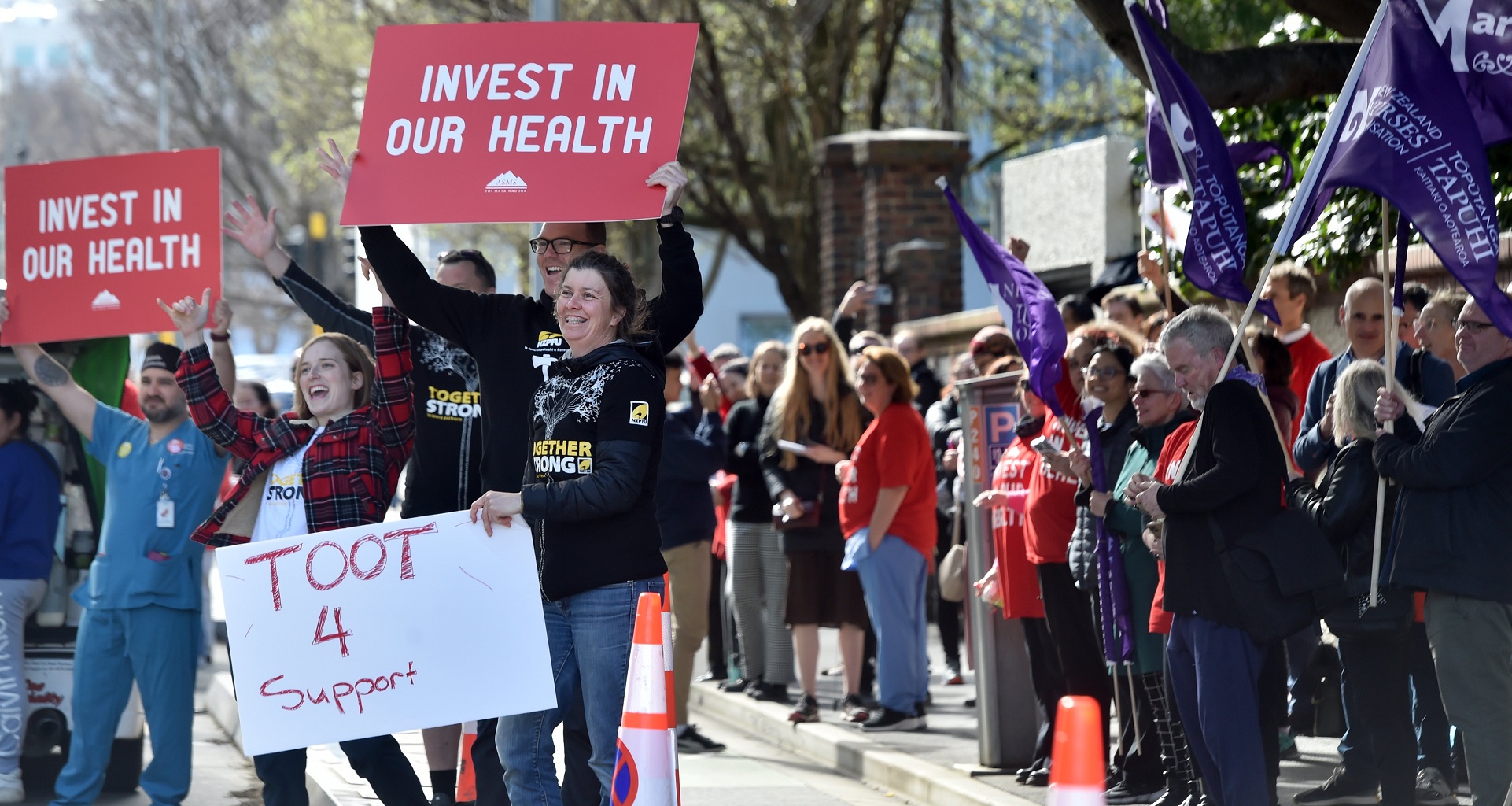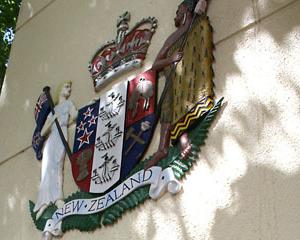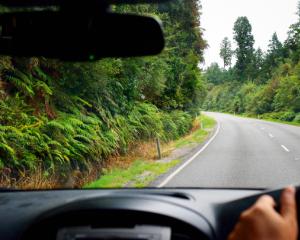Southern Association of Salaried Medical Specialists (ASMS) co-branch president Dr Chris Wisely was among those protesting for better pay outside Dunedin Hospital as part of a two-hour, nationwide strike.
Te Whatu Ora Health New Zealand (HNZ) needed to help address the number of doctors choosing to work overseas with a pay offer that kept up with inflation, he said.
"We paid our money as New Zealanders to create a really good health structure. We've got really good training. Why are we then exporting everything overseas to Australia, Canada, wherever else?"
Younger doctors in particular wanted to leave for better overseas pay rates, and those that stayed were ageing, so it was "starting to look like an American presidential campaign".
Healthcare relied on hiring workers from overseas, but they would not want to come if the system was failing, he said.
It was the first time senior doctors and dentists had gone on strike, and they wanted to be heard by HNZ in a respectful fashion, he said.
They were asking for enough to keep up with the cost of living increases and inflation.
Aside from the money, they wanted a health system with enough core workers that someone would be there to fill in when someone else needed to take a holiday.
Burnout among health workers was an issue he saw all the time as a psychiatrist.
It was a busy job — for example, doctors starting their day’s work in the morning were immediately faced with 20 patients that had been triaged as urgent from the night before.
Investing in medical staff was a "win-win situation" in the long term, as it would mean better healthcare for patients.
He wanted to be able to rely on the health system himself as he got older, as he did not have private health cover, he said.

"We need to value our health service — all members of our health service," she said.
"I don't think I've seen ever so many consultants in one place ... that's how passionately we care about our health service and our patients and our families," Dr Edmonds said.
Striking was not a decision they made lightly, and they worried about the effect it would have on the already "really fragile" health system.
However, they felt they needed to fight for a health service that could meet the needs of the community.
Lots of people went overseas, where conditions were often better and there were many vacancies, she said.
People generally loved their jobs, but were feeling tired and undervalued to the point where they were willing to make a public stand.
They were also joined by members of the New Zealand Professional Firefighters Union and the New Zealand Nurses Organisation.
HNZ acting national clinical director Dr Nick Baker said emergency departments had remained open and care was maintained for patients.
About 250 planned care procedures and outpatient appointments were deferred nationally due to the strike, although HNZ did not say how many were delayed in Dunedin.
HNZ was committed to reaching a settlement with ASMS, he said.
"We are going back to mediated talks with the union [today] with this in mind and won’t comment further on those important discussions."











